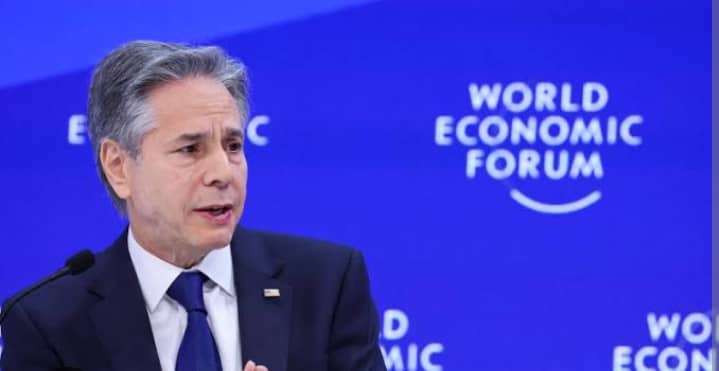
During his address at the World Economic Forum meeting in Riyadh amid ceasefire talks in Cairo between Hamas and Israel, US Secretary of State Antony Blinken delivered a poignant message concerning the ongoing conflict between Israel and Hamas. Expressing deep concern, Blinken highlighted the absence of a comprehensive plan from Israel detailing how civilian safety would be ensured in the event of an invasion of Rafah. He emphasized, "We have not yet seen a plan that gives us confidence that civilians can be effectively protected," underscoring the urgency of the matter.
This concern is compounded by the staggering toll the conflict has taken on Palestinian lives, with reports from the health ministry indicating that over 30,000 Palestinians, including 13,000 children and 8,800 women, have lost their lives since the October 7th attack on Israel by Hamas. A ground invasion of Rafah could precipitate a wider humanitarian crisis of unprecedented scale.
The lack of a clear plan for civilian protection raises serious humanitarian concerns. Against the backdrop of longstanding conflict and ongoing hostilities, ensuring the safety and well-being of civilians must be paramount. Blinken's statement serves as a stark reminder of the human cost of conflict and the imperative for all parties involved to prioritize civilian protection.
Rafah, situated in the southern Gaza Strip, has borne the brunt of the conflict between Israel and Hamas. As a city with a large refugee population, the potential consequences of military action without adequate civilian protection measures are grave. The international community, including the United States, must ensure the safety of civilians in conflict zones and prevent further loss of life.
Blinken's remarks also underscore the need for transparency and accountability in military operations. Effective protection of civilians demands clear, well-defined plans that minimize harm and adhere to international humanitarian law. By raising this issue on an international platform, Blinken reaffirms the United States' commitment to humanitarian principles and calls for urgent action to mitigate harm to civilians.
In conclusion, Blinken's statement at the World Economic Forum underscores the pressing need for a comprehensive plan to protect civilians in the event of an invasion of Rafah. This urgency is further heightened as the US grapples with pro-Palestinian protests erupting in universities across the country, reflecting a growing domestic pressure to address the conflict and prioritize civilian lives. Simultaneously, it reflects increasing pressure from the United States on Israel to reduce the death toll and prioritize civilian safety.












